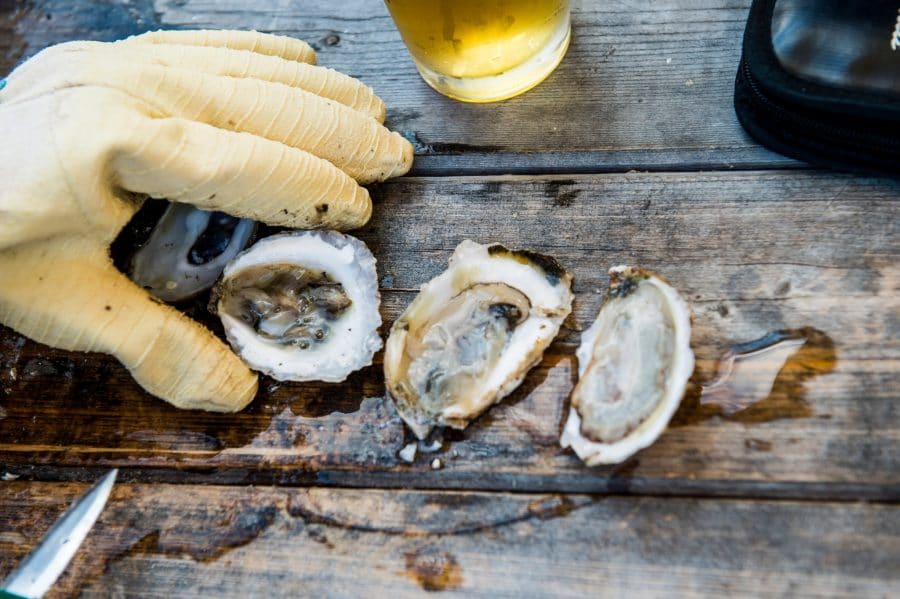Why Oysters Could Be Good for Your Mental Health

One doctor is referring some patients to the raw bar.
Everyone knows that food can affect your mood, but a lot of the time, it gets discussed in unhealthy extremes: “My order took an hour to arrive and now I’m hangry!” or “Today sucks so I am going to drown my sorrows with comfort food like macaroni and cheese!” But some doctors believe that the way food influences our mental health can be far more subtle and intricate – like psychiatrist Dr. Drew Ramsey who recently told the New York Times that he “prescribes” patients oysters.
The story begins with an unnamed 48-year-old patient seeking treatment for anxiety and mild depression who tells Ramsey that he consumed a whopping three-dozen oysters over the weekend. “You’re the only person I’ve prescribed them to who came back and said he ate 36!” the doctor is quoted as exclaiming.
So are oysters the new Prozac? Not quite. Ramsey points out that oysters are high in vitamin B12, which has been shown in studies to potentially reduce brain shrinkage, and have plenty of long chain omega-3 fatty acids, which, when people are deficient, may be linked to depression or suicide. Even then, Ramsey believes that oysters are only part of a larger connection between eating healthier and not just feeling better about yourself in an ethereal sense, but literally improving the inner-workings of the brain by giving it better micronutrients.
Our anonymous oyster binger echoed a similar sentiment. “It’s one part of the whole package that helps alleviate my depression and helps me to feel better,” he told the Times. Granted, assuming your stomach (and wallet) can handle it, who wouldn’t feel better after downing three-dozen oysters? But again, it’s not just about oysters being a delicious delicacy; it’s about their chemical make-up. So don’t expect the doctor to necessarily prescribe a bottle of Champagne to go with them.
